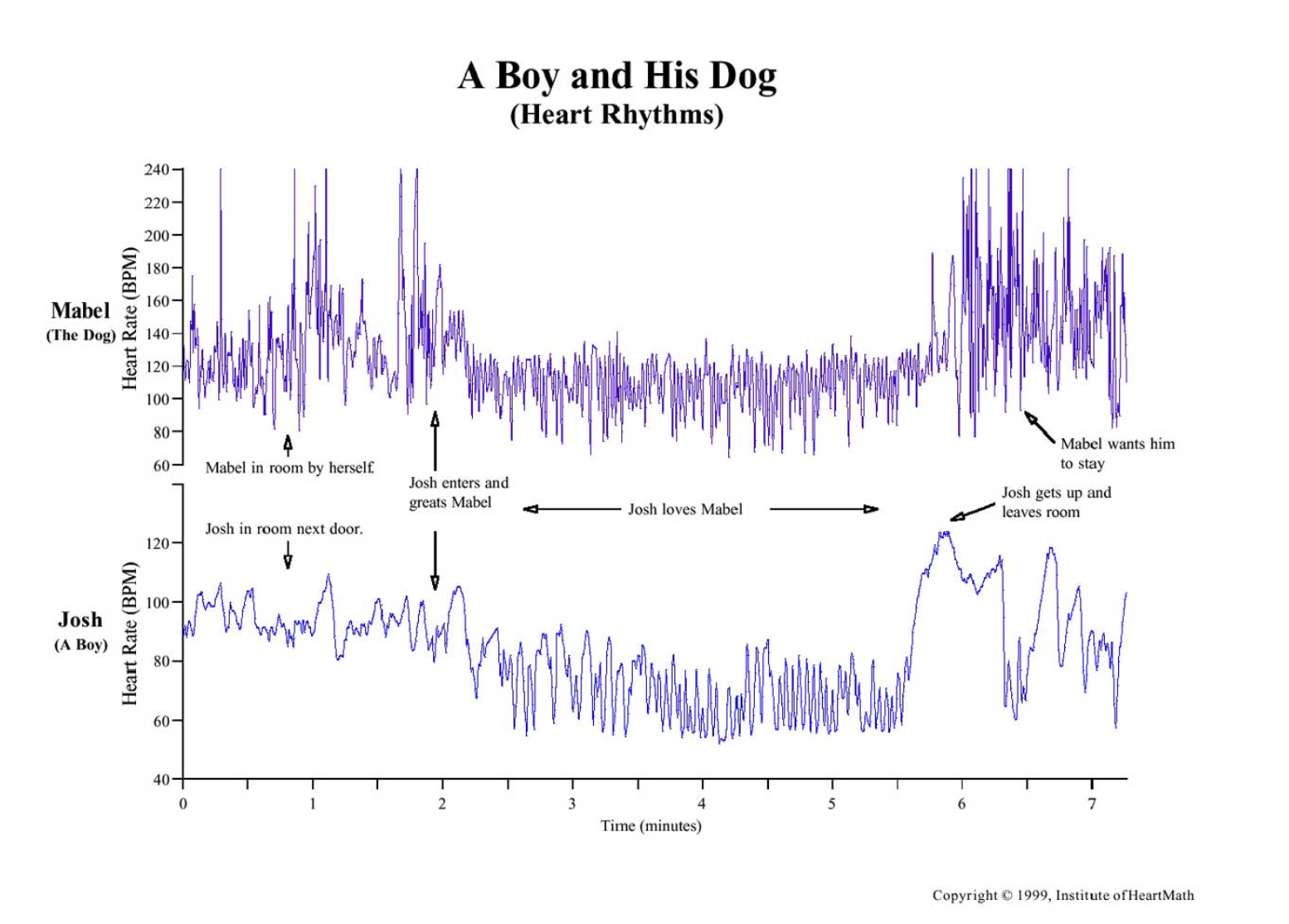What a Boy and His Dog Can Teach Us About Mental Health
The bond between a boy and his dog may seem simple, but it teaches us a complex lesson about our health.
There is this fascinating case study of a boy (Josh) and his dog Mabel that was conducted by HeartMath (an organization that provides biofeedback devices and has some awesome research).
This case study highlights the importance of secure attachment to our nervous system and body.
What is a secure attachment?
It is any person, animal, or plant (yes I have recommended someone get a plant) that provides a consistent source of belonging and perceived sense of being needed.
You need to feel needed.
You need to feel like you belong.
You need to feel like someone/something is counting on you.
You need to feel like you matter to someone or something.
It's literally crucial to our mental health.
In fact our nervous system is dependent on it to regulate itself and this case study highlights just that.
What do you mean by "regulate itself?"
Regulation means that our nervous system and our physiology will entrain and move into a rhythm. This rhythm often "syncs" with another rhythm - usually our secure attachment.
In this case study, Josh and Mabel are separated and we can see that their heart rate becomes more erratic. When they reunite, their heart rhythm syncs up.
Then they are separated again and their rhythms become again, erratic.
From: Institute of HeartMath
What this means has many implications - if someone/something is a safe space for you, you can become more regulated. Stabilizing your mood doesn't have to be something you have to do alone.
So, go out there and find your secure attachment.
It can be a person, animal, or plant (LITERALLY).
Just like how Josh and Mabel need each other, we need our own attachment to keep our nervous system in sync and our mental health stable.
Remember, eat enough protein, and find your secure attachment.
It's crucial to our well-being.
In your health,
Dr. Vanessa Ruiz
Want to learn other tips/tricks on mental health? Our Manage PTSD Masterclass starts again November 1!
Disclaimer:
This isn’t therapy - just education that could help improve your life. Also, if you’re experiencing suicidal thoughts during shutdown, please reach out for help. As I tell my clients that some rocks are too heavy to carry on your own.

